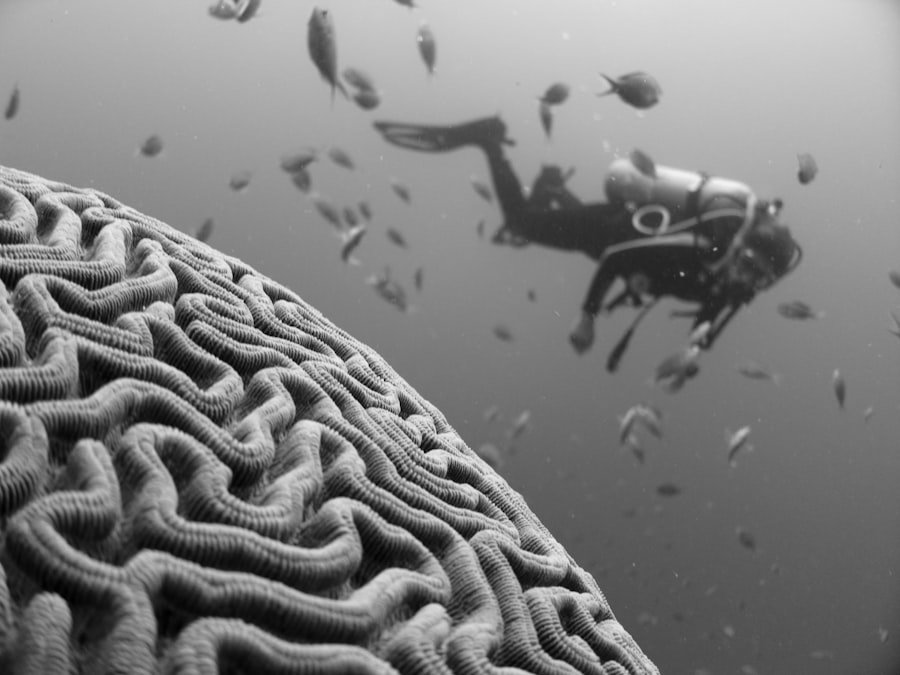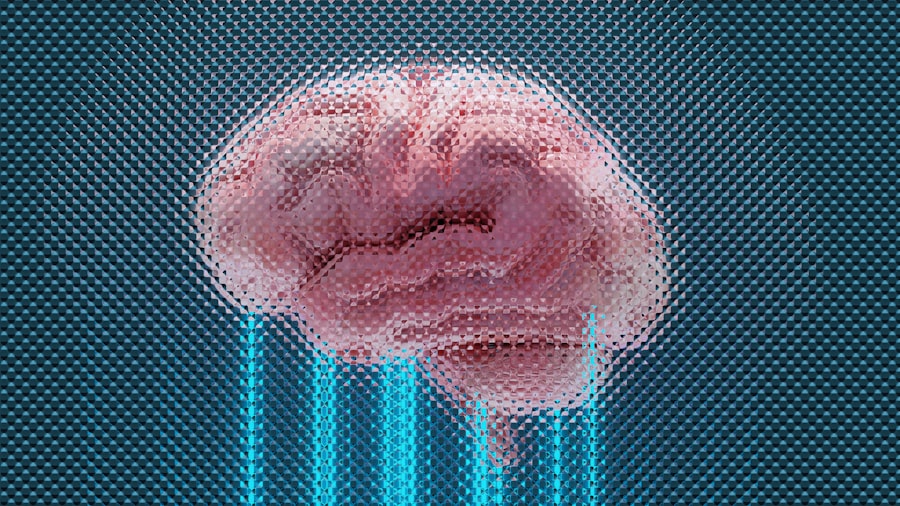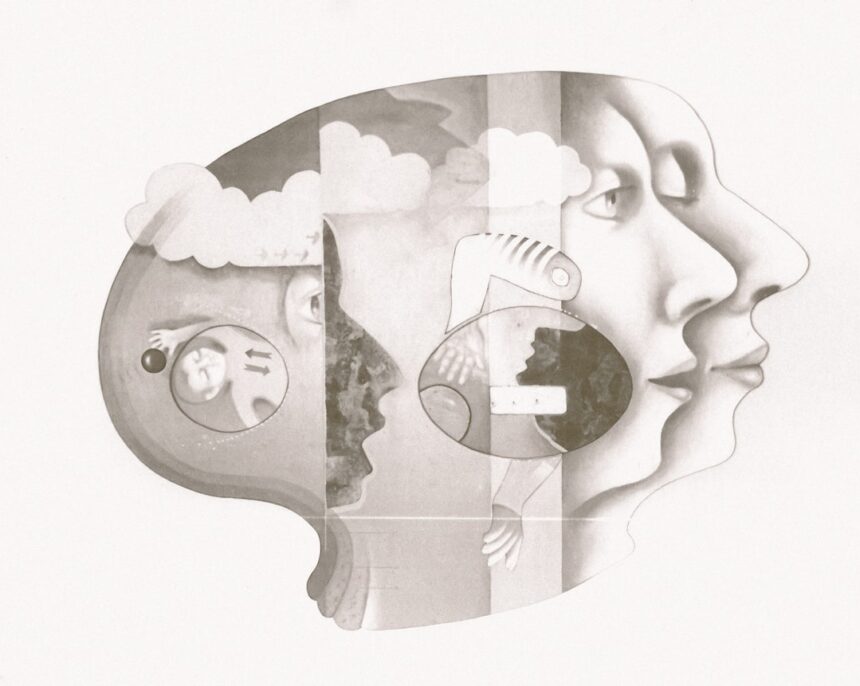Cognitive biases are systematic patterns of deviation from norm or rationality in judgment. They are the mental shortcuts your brain takes to process information quickly, often leading to errors in thinking. These biases can affect your decision-making, perception, and even your interactions with others.
Understanding cognitive biases is crucial because they shape how you interpret the world around you. By recognizing these biases, you can gain insight into your own thought processes and the decisions you make daily. As you navigate through life, you may find that cognitive biases influence your beliefs and actions more than you realize.
For instance, when faced with complex information, your brain might rely on heuristics—simple rules of thumb that help you make quick decisions. While these heuristics can be helpful, they can also lead to flawed conclusions. By becoming aware of cognitive biases, you can begin to question your assumptions and strive for a more balanced perspective.
Key Takeaways
- Cognitive biases are inherent mental shortcuts that can lead to irrational decision-making.
- Common cognitive biases include confirmation bias, availability heuristic, and anchoring bias.
- Cognitive biases can be leveraged for manipulation by exploiting people’s tendency to rely on mental shortcuts.
- Understanding the psychology behind cognitive biases involves examining how they stem from evolutionary and social factors.
- Ethical considerations in exploiting cognitive biases involve questioning the morality of manipulating others for personal gain.
Identifying Common Cognitive Biases
There are numerous cognitive biases that you may encounter in your daily life, some of which are more prevalent than others. One common bias is confirmation bias, where you tend to favor information that confirms your preexisting beliefs while disregarding evidence that contradicts them. This bias can lead to a narrow worldview, as you may only seek out information that aligns with your opinions.
Recognizing this bias in yourself can help you become more open-minded and willing to consider alternative viewpoints. Another prevalent cognitive bias is the anchoring effect, which occurs when you rely too heavily on the first piece of information you receive when making decisions. For example, if you’re negotiating a salary and the initial offer is lower than expected, that figure may anchor your expectations, making it difficult for you to evaluate subsequent offers objectively.
By identifying these biases in your thought processes, you can work towards making more informed and rational decisions.
Leveraging Cognitive Biases for Manipulation

Cognitive biases can be powerful tools for manipulation, whether intentionally or unintentionally. Marketers and advertisers often exploit these biases to influence consumer behavior. For instance, they may use scarcity tactics, creating a sense of urgency by suggesting that a product is in limited supply.
This plays on the fear of missing out (FOMO), prompting you to make impulsive purchases without fully considering your options. In social situations, individuals may also leverage cognitive biases to sway opinions or behaviors. For example, the bandwagon effect encourages you to adopt beliefs or behaviors simply because others are doing so.
If you see a group of people supporting a particular cause or product, you may feel compelled to join in, even if you haven’t fully evaluated the merits of that cause or product yourself. Understanding how these biases can be used for manipulation allows you to be more discerning in your interactions with others.
The Psychology Behind Cognitive Biases
| Cognitive Bias | Description | Impact |
|---|---|---|
| Confirmation Bias | Tendency to search for, interpret, favor, and recall information that confirms one’s preexisting beliefs or values. | Can lead to selective exposure to information and reinforce existing beliefs, hindering critical thinking. |
| Availability Heuristic | Estimating the likelihood of an event based on how easily it comes to mind. | May lead to overestimating the probability of rare events that receive significant media coverage. |
| Anchoring Bias | Relying too heavily on the first piece of information encountered when making decisions. | Can lead to making suboptimal decisions based on initial reference points. |
| Bandwagon Effect | Tendency to do or believe things because many other people do or believe the same. | Can lead to conformity and herd behavior, influencing individual decision-making. |
The psychology behind cognitive biases is rooted in the way your brain processes information. Your brain is constantly bombarded with stimuli, and it must filter through this information to make sense of the world. This filtering process often leads to shortcuts that can result in cognitive biases.
For example, your brain may prioritize emotional responses over logical reasoning, leading to decisions based on feelings rather than facts. Additionally, cognitive biases are influenced by social and environmental factors. Your upbringing, cultural background, and personal experiences all shape how you perceive information and make decisions.
Understanding the psychological underpinnings of cognitive biases can help you recognize their impact on your thought processes and encourage you to approach situations with greater awareness and critical thinking.
Ethical Considerations in Exploiting Cognitive Biases
While cognitive biases can be leveraged for manipulation, ethical considerations must come into play when deciding whether to exploit them. Manipulating others through their cognitive biases raises questions about consent and autonomy. When you use these biases to influence someone’s decision-making without their awareness, it can be seen as a violation of their agency.
Moreover, the consequences of exploiting cognitive biases can extend beyond individual interactions. When businesses or organizations manipulate consumers through biased tactics, they contribute to a culture of mistrust and skepticism. It’s essential to weigh the potential benefits against the ethical implications of using cognitive biases for personal gain.
Striving for transparency and honesty in your interactions can foster healthier relationships and promote a more ethical approach to influence.
Techniques for Exploiting Cognitive Biases

If you’re interested in understanding how to exploit cognitive biases effectively, there are several techniques that can be employed. One such technique is the use of social proof, which relies on the tendency of individuals to look to others for guidance in uncertain situations. By showcasing testimonials or endorsements from satisfied customers, you can create a sense of trust and credibility around a product or service.
Another effective technique is framing, which involves presenting information in a way that influences perception and decision-making. For instance, if you’re selling a health product, framing it as “90% effective” rather than “10% ineffective” can significantly impact how potential customers perceive its value. By carefully crafting the narrative around your message, you can tap into cognitive biases and guide individuals toward desired outcomes.
Recognizing Manipulation Tactics
To protect yourself from manipulation based on cognitive biases, it’s essential to develop an awareness of common tactics used by others. One tactic is the use of emotional appeals, which aim to elicit strong feelings that can cloud judgment. When someone tries to provoke an emotional response—whether through fear, joy, or anger—it’s crucial to take a step back and assess the situation rationally.
Another manipulation tactic is the use of authority figures to lend credibility to a message. When someone presents themselves as an expert or authority on a subject, it can create an automatic trust response in you. However, it’s important to critically evaluate the claims being made and consider whether they hold up under scrutiny.
By recognizing these tactics, you can better defend yourself against manipulation attempts.
Protecting Yourself from Manipulation
Protecting yourself from manipulation requires a combination of self-awareness and critical thinking skills. Start by questioning your own beliefs and assumptions regularly; this practice can help you identify any cognitive biases that may be influencing your decisions. Engaging in discussions with diverse perspectives can also broaden your understanding and challenge any entrenched views.
Additionally, practice mindfulness when consuming information—whether from media sources or interpersonal interactions. Take time to reflect on how emotions may be influencing your responses and strive for a balanced approach when evaluating claims or offers. By cultivating these habits, you’ll be better equipped to navigate situations where manipulation may occur.
The Impact of Manipulation on Society
The impact of manipulation based on cognitive biases extends beyond individual interactions; it has far-reaching consequences for society as a whole. When individuals are consistently manipulated through biased tactics—be it in advertising, politics, or social media—it erodes trust in institutions and relationships.
Moreover, widespread manipulation can contribute to the spread of misinformation and disinformation. When individuals are swayed by biased narratives without critical evaluation, they may unknowingly perpetuate falsehoods that further complicate societal issues. Recognizing the broader implications of manipulation encourages a collective responsibility to foster transparency and integrity in communication.
The Role of Media in Exploiting Cognitive Biases
Media plays a significant role in exploiting cognitive biases by shaping narratives that resonate with audiences’ emotions and beliefs. Sensationalism is one common tactic used by media outlets to capture attention; headlines designed to provoke strong reactions often lead individuals to engage with content without fully understanding the context or facts behind it. Additionally, algorithms used by social media platforms often prioritize content that aligns with users’ existing beliefs—reinforcing confirmation bias and creating echo chambers where dissenting opinions are marginalized.
This phenomenon highlights the importance of media literacy; by developing critical skills for evaluating media messages, you can become a more discerning consumer of information.
Using Cognitive Biases for Positive Influence
While cognitive biases can be exploited for manipulation, they also hold potential for positive influence when used ethically and responsibly. For instance, understanding how social proof works can help you encourage positive behaviors within your community—such as promoting healthy habits or environmental sustainability—by showcasing examples of others making similar choices. Moreover, framing messages positively can inspire action and motivate individuals toward beneficial outcomes.
Harnessing cognitive biases for good allows you to influence others while fostering trust and collaboration within your community. In conclusion, understanding cognitive biases is essential for navigating both personal decision-making and societal interactions effectively.
By recognizing common biases, identifying manipulation tactics, and employing ethical strategies for influence, you can cultivate a more informed perspective while contributing positively to those around you. As you continue on this journey of awareness and growth, remember that knowledge is power—and with it comes the responsibility to use that power wisely.
In the realm of psychology, understanding how manipulators exploit cognitive biases is crucial for developing strategies to counteract their influence. A related article on this topic can be found on Unplugged Psychology, which delves into the various cognitive biases that manipulators often leverage to sway opinions and behaviors. These biases, such as confirmation bias and the anchoring effect, can subtly influence decision-making processes, making individuals more susceptible to manipulation. For a deeper exploration of these concepts, you can read more in the article available at Unplugged Psychology. This resource provides valuable insights into recognizing and mitigating the impact of cognitive biases in everyday interactions.
WATCH THIS! 🧠 The 11 Manipulation Tactics That Trap Smart People
FAQs
What are cognitive biases?
Cognitive biases are systematic patterns of deviation from rationality in judgment. They occur when people make decisions based on subjective factors rather than objective ones.
How do manipulators use cognitive biases?
Manipulators use cognitive biases to influence and control others by exploiting their natural tendencies to make irrational decisions. They may use tactics such as framing information in a certain way, appealing to emotions, or creating a sense of urgency to exploit these biases.
What are some common cognitive biases that manipulators exploit?
Some common cognitive biases that manipulators exploit include confirmation bias, where individuals seek out information that confirms their existing beliefs, and anchoring bias, where individuals rely too heavily on the first piece of information they receive.
How can individuals protect themselves from manipulators using cognitive biases?
Individuals can protect themselves from manipulators by becoming aware of common cognitive biases and learning to recognize when they are being exploited. They can also practice critical thinking and skepticism, and seek out diverse perspectives and information before making decisions.




